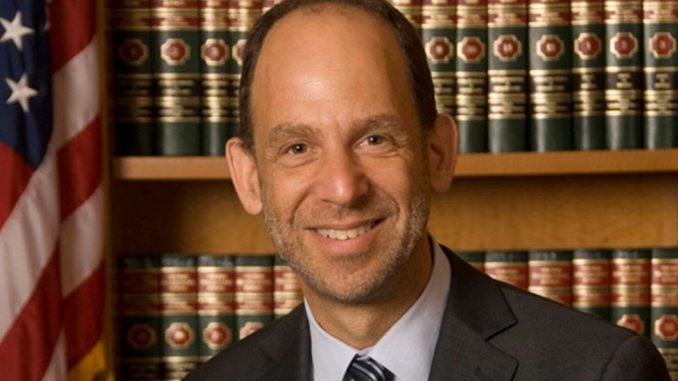
A Brooklyn judge believes he found a loophole for the state’s controversial new bail reform law — and used it to send a serial burglar to jail.
In a ruling published this week, Brooklyn Supreme Court Justice John Hecht tapped a little-used 40-year-old statute that lets judges keep some persistent felony offenders behind bars for up to 90 days to order prolific burglar Casey Knight locked up at the Otis Bantum Correctional Center in East Elmhurst.
Knight, 51, who has seven prior convictions, had another burglary charge pending when he was released in December thanks to the bail reforms — but was busted for allegedly pulling off three more heists last month.
Burglary in the second degree is one of the felonies that are no longer eligible for bail thanks to the new laws, but Hecht in his ruling argued that the 1981 law was not changed when state lawmakers made their reforms, and should therefore still apply in this case.
“The exclusion of burglary in the second degree simply isn’t there,” Hecht said of the older law.
“Accordingly, based on all these factors, the court concluded that the least restrictive condition to reasonably assure his return was remand for a period of 90 days.”
A spokesman for the Legal Aid Society, which represents Knight, said the office is still reviewing Hecht’s ruling “to determine next steps.”
The unorthodox legal maneuver divided opinion among legal experts.
Bennett Gershman, a former Manhattan prosecutor and now a professor at Pace University School of Law, said the Brooklyn judge did the “right thing.”
“The judge rescued a very bad situation using this statute,” said Gershman, who added that state legislators overreached on the reform measure, exposing the system to “embarrassing” lapses.
But Jocelyn Simonson, a former public defender who teaches at Brooklyn Law School, said lawmakers clearly hadn’t intended to leave the old law on the books — and suggested the judge was using the case to air his own grievances with the new bail reforms.
see also
“This is not a result that should be happening,” Simonson said. “He’s going out of his way to make a ruling that he didn’t have to make.”
Knight was busted in November 2018 for allegedly breaking into a Bedford-Stuyvesant building by busting through a windowpane on the front door and stealing more than $3,000 worth of jewelry.
A judge at the time set bail on Knight but he didn’t pay it, according to court documents.
He was behind bars for more than a year, until Brooklyn Supreme Court Justice Barry Warhit released him without bail on Dec. 3 in anticipation of the coming bail reforms, which technically went into effect Jan. 1.
Prosecutors allege the freed Knight looted three more Bed-Stuy homes in the span of two weeks, making off with music equipment, electronics, Playstation games and two pairs of shoes.
He was arrested Feb. 1 and brought before Hecht five days later.
Hecht is just the latest New York judge to try to find a way around the bail reform measures.
Last month, Nassau County District Judge David McAndrews ordered accused serial bank robber Romell Nellis held on $10,000 cash bond — even though the charge was not bail-eligible under the new law.
Another Nassau judge was later forced to release Nellis without bail — only to have the alleged thief hack off his court-ordered monitoring ankle bracelet and hit up two more banks, police said.
Earlier this month, Bronx Criminal Court Supervising Judge George Grasso called the bail reform measures “a significant threat to public safety.”
*story by The New York Post